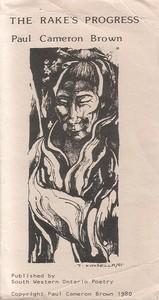Read this ebook for free! No credit card needed, absolutely nothing to pay.
Words: 28952 in 14 pages
This is an ebook sharing website. You can read the uploaded ebooks for free here. No credit cards needed, nothing to pay. If you want to own a digital copy of the ebook, or want to read offline with your favorite ebook-reader, then you can choose to buy and download the ebook.


: A Week at Waterloo in 1815 Lady De Lancey's Narrative: Being an Account of How She Nursed Her Husband Colonel Sir William Howe De Lancey Quartermaster-General of the Army Mortally Wounded in the Great Battle by De Lancey Magdalene Lady Dickens Charles Con
Sir William De Lancey, soldier, only son of the preceding, was born in New York about 1781, and died in June 1815, in consequence of wounds received at the battle of Waterloo. He was educated in England, and early entered the British army. He served with great distinction under Wellington in Spain, and was several times honourably mentioned in his despatches.
The following is the extract from Wellington's official despatch of the 19th June, referring to De Lancey:--
"I had every reason to be satisfied with the conduct of the Adjutant-General, Major-General Barnes, who was wounded, and of the Quartermaster-General, Colonel De Lancey, who was killed by a cannon-shot in the middle of the action. This officer is a serious loss to His Majesty's service, and to me at this moment."
That the Duke felt keenly his severe losses in killed and wounded, especially amongst the members of his Staff, is shown by the following reminiscence of General Alava, as told by him, two years after the battle, to Sir Harry Smith and his wife--the lady now immortalised by the name Ladysmith, emblazoned on the colours or accoutrements of thirty-five British regiments.
On the evening of the battle, "the Duke got back to his quarters at Waterloo about nine or ten at night. The table was laid for the usual number, while none appeared of the many of his Staff but Alava and Fremantle. The Duke said very little, ate hastily and heartily, but every time the door opened he gave a searching look, evidently in the hope of some of his valuable Staff approaching. When he had finished eating, he held up both hands in an imploring attitude and said, 'The hand of Almighty God has been upon me this day,' jumped up, went to his couch, and was asleep in a moment."
The following is from General Alava's official report of the action: "Of those who were by the side of the Duke of Wellington, only he and myself remained untouched in our persons and horses. The rest were all either killed, wounded, or lost one or more horses. The Duke was unable to refrain from tears on witnessing the death of so many brave and honourable men, and the loss of so many friends and faithful companions."
The next morning, the Duke wrote the following note to Lady Frances W. Webster, dated
"Half-past 8 in the morning.
"MY DEAR LADY FRANCES,
"Lord Mount-Norris may remain in Bruxelles in perfect security. I yesterday, after a most severe and bloody contest, gained a complete victory, and pursued the French till after dark. They are in complete confusion; and I have, I believe, 150 pieces of cannon; and Bl?cher, who continued the pursuit all night, my soldiers being tired to death, sent me word this morning that he had got 60 more. My loss is immense. Lord Uxbridge, Lord Fitzroy Somerset, General Cooke, General Barnes, and Colonel Berkeley are wounded: Colonel De Lancey, Canning, Gordon, General Picton killed. The finger of Providence was upon me, and I escaped unhurt.--Believe me, etc.,
"WELLINGTON."
Captain Gronow--a subaltern of the 1st Guards at Waterloo--gives us the following glimpse of the Duke and his Staff, on the morning of the 18th, before the opening of the battle:--
Free books android app tbrJar TBR JAR Read Free books online gutenberg
More posts by @FreeBooks

: The Eyes Have It by Dick Philip K - Science fiction; Short stories; Humorous stories Science Fiction








